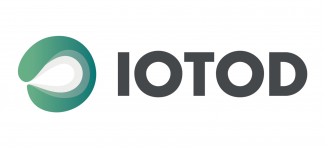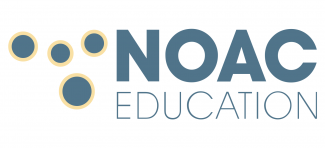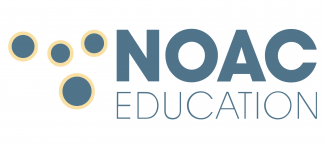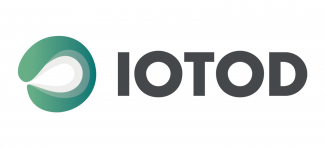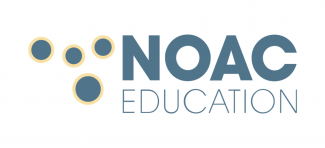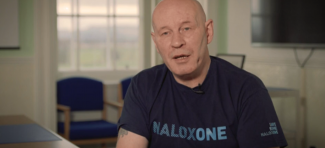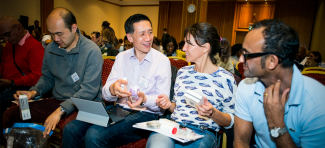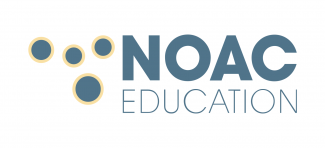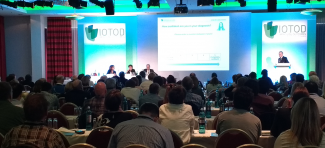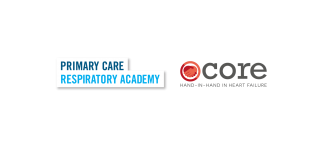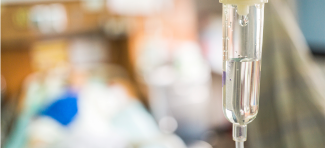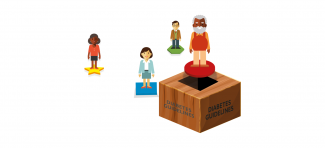We are pleased to announce that Cogora: The Agency, PCM Scientific, our medical education division, and Account Director, Mia Neve, have been nominated for three awards at the 2017 Communiqué Awards.
The Communiqué Awards are one of the most prestigious industry awards in the medical communications and educations space. Judged by a panel of over 100 industry experts and leaders, all entries must demonstrate measurable impact and improvement in the provision of healthcare.
Our medical-education programme the Primary Care Respiratory Academy (PCRA) has been nominated in the ‘Excellence in Professional Education Programmes’ category, the PCM Scientific programme, ‘CORE: Hand-in-hand in heart failure’ has been nominated in the ‘Excellence in Communications via Meetings’ category, and Account Director, Mia Neve, has been shortlisted for ‘Young Achiever in Healthcare Communications’.
Primary Care Respiratory Academy
The Primary Care Respiratory Society UK, a professional society for healthcare professionals with an interest in respiratory care in a primary or community care setting, entered a strategic educational partnership with Cogora to improve respiratory education, as well as raise the society’s profile among the wider primary care sector.
This unique partnership led to the creation of the PCRA, which combined KOL-led educational events with an online education platform, offered to primary care healthcare professionals through Cogora’s community and brands.
In 2016, the PCRA programme delivered 20 full-day educational meetings nationwide, educating more than 1,200 primary care healthcare professional delegates. While the complementary online hub with CPD resources, news and respiratory information further extended the reach to an additional 20,000 UK-based healthcare professionals. The initiative was a great success with 95% of participants highly rating the programme.
The 2016 programme was funded by Pfizer (on behalf of the Novartis-Pfizer Alliance).
Judges’ comments
‘A well-executed and well-presented entry with clearly demonstrated strategy and objectives. It incorporated impressive statistics and presented fabulous outcomes. The team showed a real willingness to adapt the programme to meet their audience needs. We would have been happy with the results if we had been working on it’.
CORE: Hand-in-hand in heart failure
The CORE programme, supported by funding from Novartis Pharma AG, was established to meet the European Society of Cardiology’s call for multidisciplinary programmes to encourage an integrated approach and to reach the expected standards of care for patients with heart failure.
PCM Scientific is a provider of CME programmes that not only reach broad, global audiences but deliver meaningful, measurable and sustainable impact on professional behaviours and patient care.
Through CORE, PCM Scientific has brought together key representatives of the heart failure multidisciplinary team to enhance relationships and foster continued collaboration towards best practice care. A Steering Committee of 9 international heart failure experts, 24 National Faculty members and 108 Country Facilitators identified local clinical care gaps and educational needs, and have designed and implemented a cascading educational approach with tailored, flexible content across Austria, Australia, Canada, Spain, Sweden and the UK.
The programme will exceed its target number of 220 educational meetings and 1760 participants upon completion, and already 72% of learners are committing to change their practice, with 81% stating that CORE will improve patient outcomes.
CORE is supported by funding from Novartis Pharma AG. All educational content and materials are created by the CORE Steering Committee in collaboration with PCM Scientific, the medical education company acting as secretariat. The financial supporter has had no involvement in the creation or development of the educational content.
Judges’ comments
‘This comprehensive programme was well executed and very exciting. It has an innovative strategy and the accreditation gave it an extra something special. We could see this entry making a big difference to people’s lives’.
Mia Neve, Account Director
Over the last 12 months, Mia has coordinated a global outreach programme, organised a 3-day European conference, delivered a CMA-accredited symposium in under six weeks and has won over £2 million of business.
Judges’ comments
‘Mia took a bit of a gamble with her presentation style, but in it we saw her creativity come to life beautifully. We loved her energy, enthusiasm and positive attitude and she came across as very genuine. There’s no doubt that she’s going to be someone to watch’.
